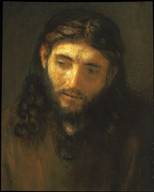
With the passing on of the 10th Doctor we have lost probably the best actor - David Tennant - who has played the role so far, and the best script writer - Russell T Davies. I think it has been Davies's plots and scripts that have made the recent series so majestic. The number of interweaving story lines that leave their motifs dotted through the series is comparable to Wagner's 'Ring' cycle of operas. They have brought a unity to the individual episodes that is quite biblical in proportion.
I watched the last episode with my children and was moved by the Doctor's last words before his regeneration: "I don't want to go." That phrase tore at the heart strings because it contains the thought that we all probably have as we face our mortality and have to come to terms with leaving behind the people we love and the experiences we have enjoyed.
I believe that Russell T Davies is an atheist, but he has brought many fundamental values that Christians hold into his stories, particularly that of self-sacrifice. When The Doctor confronted the Master in the previous encounter, he was willing to give his life so that The Master could be redeemed. Even in this last episode he was willing to give his life to save The Master, and when The Master refused, then The Doctor was prepared to die to safe Wilf, the old soldier he had met on earth - a 'nobody' in one sense, but 'everyman' in another sense and worth saving.
You don't have to look very far to see echoes of Jesus' great sacrifice here. Even The Doctor's appearances to his previous companions seemed to owe something to the accounts in John's Gospel of Jesus' resurrection appearances to his disciples. Although The Doctor had not yet regenerated before these appearances I suppose you could say that he had been through a death experience in the radiation chamber when he was saving Wilf.
Russell T Davies and David Tennant both leave very large shoes to fill. I hope those that come after them will do just as well. I'm sure in years to come people will ask, "Where were you when the Tenth Doctor died?"





